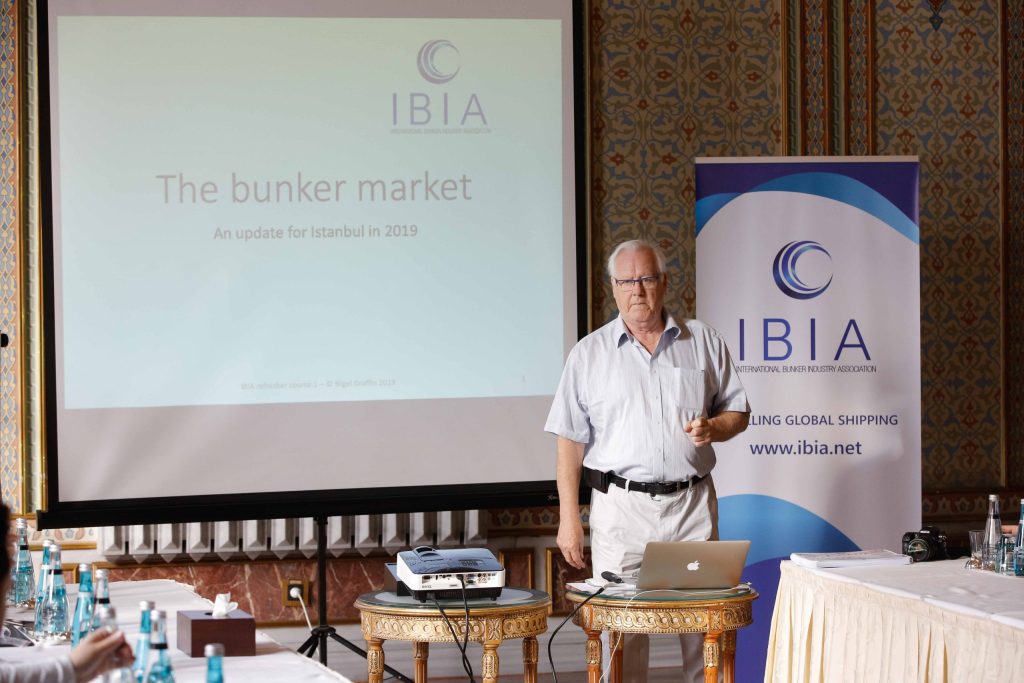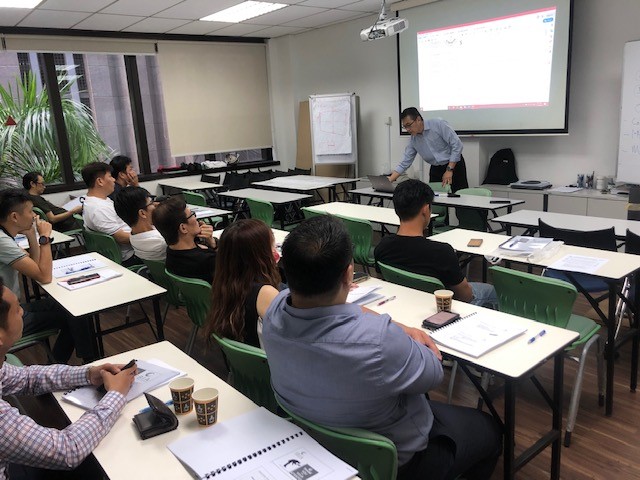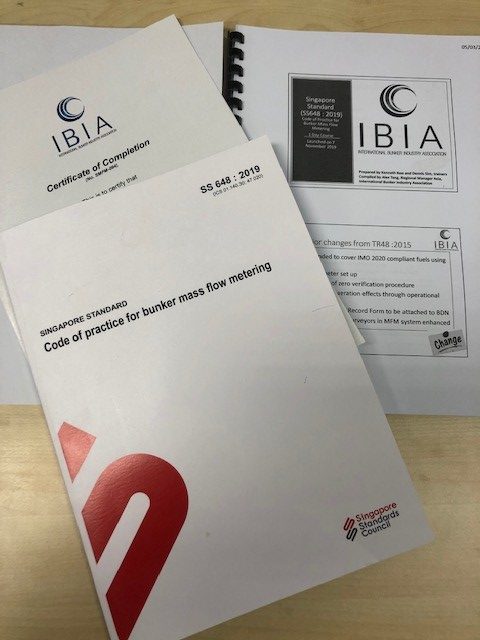Training
One of the key values of IBIA at its inception was to Educate and Inform. Training is therefore a core value of the Association. IBIA offers a number of training courses that enable individuals to gain a greater insight into the industry, drawing on the great breadth of experience and knowledge across the membership.

IBIA Bunker Training Course
This Industry-leading training course covers a range of topics to give participants a comprehensive overview of the bunker market. This includes commercial and legal aspects to understand the roles of buyers and sellers, traders, brokers, contracts, sales terms, and different types of claims. It covers fuel quality and fuel management issues such as understanding ISO 8217 and ISO 4259 and best practices for suppliers and users with VLSFO and other fuel types. MARPOL Annex VI and the implications and practicalities of compliance with the 2020 sulphur limit and future regulations are also covered in detail.
This one-day intensive course (9am-5pm) consists of real-life case studies and practical exercises to support the key areas covered.
On completion of the course, delegates will receive the ‘IBIA Certificate of Attendance’.
The renowned industry expert Nigel Draffin, Author of 12 books on Bunkering and an IBIA board member, runs this course.
MPA approved - 1 Day Bunkering Course SS648:2019
Enterprise Singapore and the Maritime and Port Authority of Singapore (MPA) will be implementing the Singapore Standard SS648:2019 effectively from 1 May.
SS648:2019 is designed to further enhance consistency in practices in the delivery of bunkers for ships calling at Singapore’s port. The standard sets out guidelines and procedures to ensure that the correct quality and quantity of bunkers are being delivered safely and efficiently with Mass Flow Metering.
The course is designed for Cargo Officers who have already attended the 2 days basic and enhanced course SS600:2014 & TR48:2015, and MPA Endorsed Bunker Surveyors operating at Singapore port.
It will update participants with knowledge of the bunker industry and processes in accordance to SS648:2019,
Additional topics covered include system integrity, sealing requirements and processes, dispute resolution, workshop exercises and case studies, personal safety awareness, personal protective equipment (PPE) and safe boarding.


Training courses currently undertaken
One day intensive Course to build a solid general understanding of the Bunkering Industry
Beginner, Intermediate or advanced bunker training courses are available upon request for a minimum attendance of 15 people
1 Day Bunkering Course - MPA Approved
(SS648:2019)
For Cargo Officers who have attended the 2 days basic and enhanced course SS600:2014 & TR48:2015 and MPA Endorsed Bunker surveyors in Singapore
IBIA Online Training
Module 1: Bunker Market Regulations and Enforcement
Learn how the regulations were developed, how they are enforced and how effective use of formal procedures can avoid risk. Three presentations on:
International Regulations – This covers the introduction of both SOLAS and MARPOL and the current status of IMO regulations which apply to bunkers and bunkering.
Compliance and Enforcement – This examines the requirements with which vessels must comply in order to meet the regulations of their Flag State and any Port State that they visit. It also discusses the enforcement methods available to Flag and Port and the penalties attached.
Bunker procedures – This covers the development and application of procedures and standards of bunkering operations including ISO 13739, SS600 and the application of Mass Flow Metering in the new SS648.
Module 2: Understanding ISO 8217 and ISO 4259
Why we need standards, how to use and interpret them and how to deal with the results of the laboratory test.
Three presentations on:
International marine fuel standards – The reason, the history and the development of quality standards.
ISO 8217:2017 – An examination of the principal clauses, the parameter tables and the informative Annexes.
ISO 4259 and precision – Understanding the concept of precision in testing and its application to results of laboratory test results. It also highlights some differences between the ISO 4259 requirements and those of SOLAS and MARPOL.
Module 3 – Best practice for suppliers with VLSFO
Looking at the Best Practice guide for bunker suppliers published by IBIA. Three presentations on:
Objectives and Quality control – The purpose of the guide and its application to producing a product which meets the required standard.
Aspects of delivery – The best practice to maintain and assure the quality of the product from barge tanks to receiving vessel with an emphasis on sampling proper documentation and the provision of advice.
Contracts and disputes – Understanding contract and sales terms, the disputes procedures and a discussion on typical problems.
Module 4 – Best practices for users with VLSFO
Based on the Best Practice guide for bunker purchasers published by IMO. Three presentations on:
Objectives – The requirements, the goals and the specific exemptions.
Aspects of delivery – This covers supplier selection and vetting, delivery procedures and fuel handling.
Testing and disputes – Further examination of delivery procedures, sampling, testing and guidance on disputes.
Module 5: Adapting to a changing market
Looking at the issues of geopolitics, the current Pandemic and the way they may influence on maritime trade and ships fuel. Four presentations on:
Changing fuel quality – Looking at the impact of new regulations and changing demand on the quality of fuel.
Changing fuel demand – Examining the way bunker demand may change in response to pressures on pricing, availability and new regulations.
Changing price and credit risk – Understanding how price instability and structural change will disrupt the business model of both sellers and users.
Alternative fuels and new regulations – An examination of the potential for alternative fuels, the pressure to reach zero carbon and sustainable fuels and the likely timeframe for all these options.
Module 6: Compatibility and stability – Issues with VLSFO fuels and the measurement of Stability
Understanding the physics of mixtures, the concept of stability and the available test methods to assess if fuel blend components will form a stable blend.
Issues with stability. More details of the available test methods including the laboratory only tests, sensible precautions on storage and treatment and comments on the 50:50 mix.
Coping with potentially unstable fuels. Advice and comment on implications of elevated levels of TSP, operational issues in storage, treatment and use.
Module 7: Sales terms and conditions – The purpose, structure and application of Sales terms
The structure and principal clauses in sales terms and conditions with reference to BIMCO terms and Buyers terms.
A more detailed consideration of the incorporation of terms into the contract, the detail of the most important clauses and the use of the BIMCO “election sheet”
An assessment of using sales terms in the regulation of disputes and claims with a discussion on evidence and exclusions.
Module 8: Quantity measurement – The principles of quantity measurement including Mass Flow Metering
The fundamentals of getting from a sounding to a Mass in air quantity
A worked example of a quantity calculation.
An introduction to Mass Flow Metering covering the principles, current practice, comments on accuracy and fraud prevention.
Module 9: Sampling – The basics of sampling, sampling methods and sample handling
The reasons for sampling and a discussion of the basic types and methods of sampling.
A detailed description of manual continuous drip sampling and a discussion on sample location and the regulatory requirements for a delivered sample in MARPOL Annex VI.
The transportation, retention and care of samples plus further discussion on the additional aspects of MARPOL samples.
Module 10: Fuel quality – Fuel quality, its impact on storage, treatment and use in the engine
Fuel quality and the impact of the principal parameters and the units involved.
The relevance of fuel quality parameters on storage and treatment of the fuel with a discussion on the relevance of the time in storage on quality.
The impact of fuel quality on the operation and performance in a marine diesel engine.
The materials in these modules have been provided by Board Member Nigel Draffin and are based on personal knowledge and experience. Some data and materials have been contributed over the years by other members of the association. All modules have been peer reviewed by members of the IBIA board and the appropriate Working Groups of the Association. The author acknowledges the contributions of all members past and present. All information contained is given in good faith and is intended to improve the understanding of the topics by all sectors of the industry.
Training Facilities
In Singapore IBIA has a dedicated training facility to meet the needs of the local and regional industry, IBIA carries out training world-wide in conjunction with industry conventions and seminars also as required by Industry and National Authorities. We can also address any bespoke matters, please contact us for further details on ibia@ibia.net
Asia
IBIA Bunker Training Coursse
Bespoke Training
Take advantage of the IBIA Bunker Training course locally and ask for a bespoke training for your company and employees. Beginner, Intermediate or advanced bunker training course are available upon request for a minimum attendance of 15 people. Focus more on your area of interest and get the best out of the training experience delivered by IBIA’s highly specialised trainers.